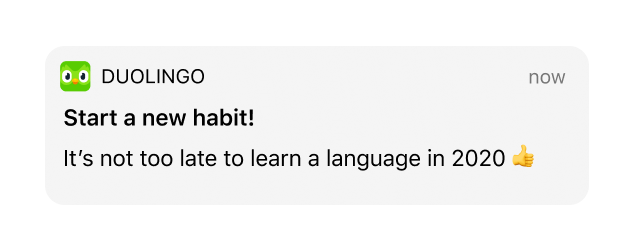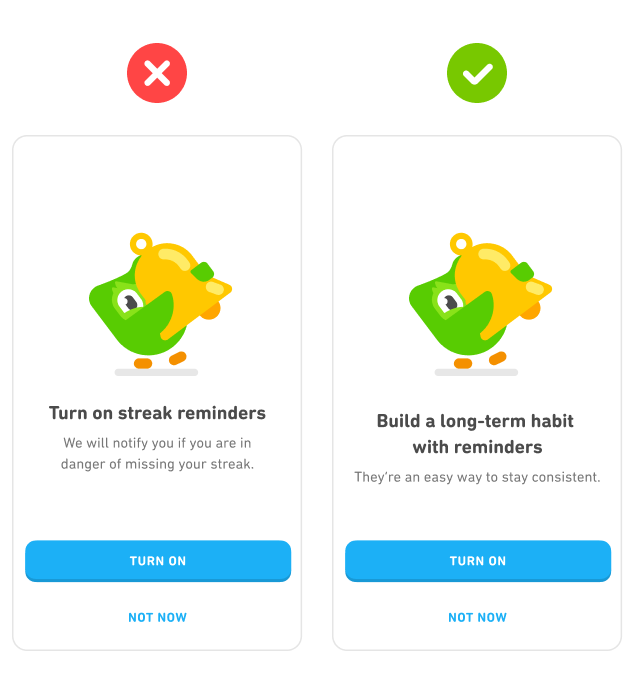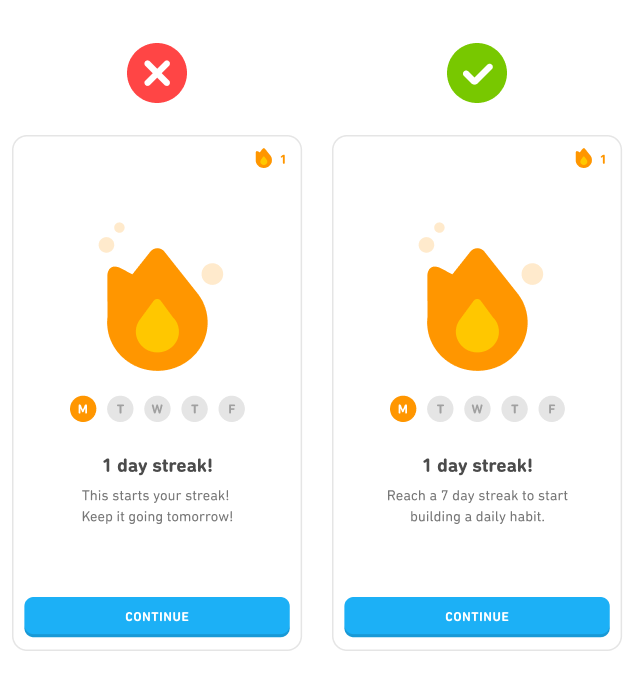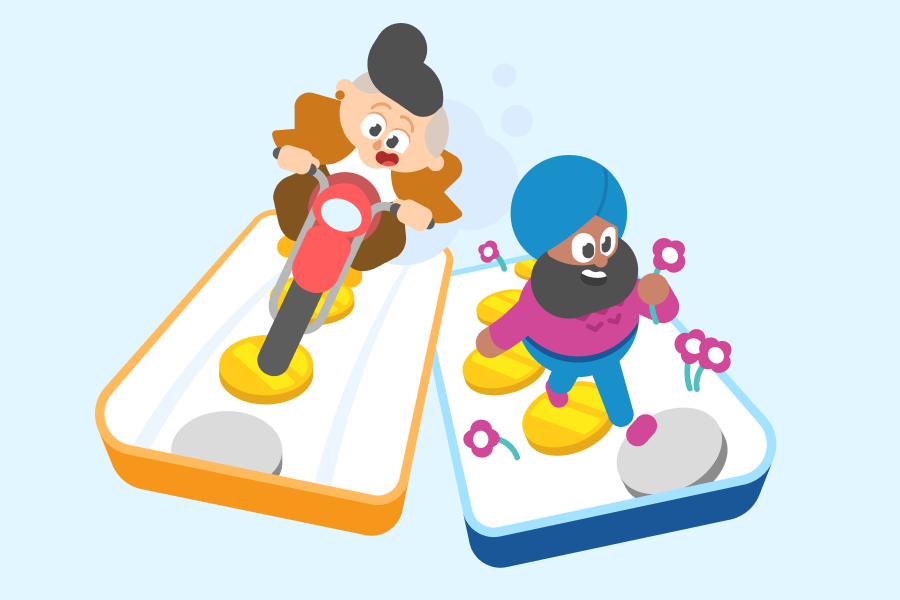I started 2020 with a big goal: to lose 10 pounds. I'm a former collegiate athlete who now works at a desk all day, so I'm always hoping to feel more fit. But then, the pandemic hit. And my goal? Forget it. I decided 2020 was a year to just get through, not a year to work toward personal progress.
But in September 2020, my husband and I started running. It began with a three-mile run on a Monday, after we dropped off our son at school. Then we ran again on Wednesday. Then Friday. Now, we have a three-days-a-week running habit. I don't know if I've lost 10 pounds, but I feel good, and I have a plan to keep feeling good: put on my workout clothes, go outside, and start running.
Instead of setting a goal, I formed a habit. It's made all the difference — and it's a mindset that also seems to work for language learners on Duolingo.
Goals are destinations
Understanding a new language is a goal. It's a huge goal, so congratulations on setting your bar so high! But it may be hard to get started. “Speaking Spanish with my grandmother” is a destination; what's the journey to get there?
Duolingo is one such journey. When you sign up, you get a systematic, personalized path toward your learning goals. The app's main interface even looks like a path, with harder skills you unlock along the way.
So now you have your destination, and you have a journey to get there. What's next?
Next, you put in work! Daily, ongoing work. Learning is an ongoing process, and we at Duolingo make sure it's a successful one for you by making it a daily process.
Habits are bite-sized goals
Duo, our mascot, is (in)famous for reminding our learners to practice every day.

Duo's heart is in the right place. He knows that daily practice is the best way to retain what you learn on Duolingo and — say it with me now — reach your goals.
We believe so strongly in daily practice that we made the streak a cornerstone of the app. Your streak measures how many consecutive days you've practiced. (My streak stands at 280 days, practically nothing compared to some learners out there.) The longer your streak, the likelier you are to practice the next day — and that starts with unlocking a weeklong habit: our data shows that learners who reach a streak of 7 days are 2.4x more likely to use Duolingo the next day.
I practice on Duolingo after running, before breakfast. (If I forget, Duo reminds me.) Duolingo's lessons are bite-sized, and that extends to each day's practice: you achieve a bite-sized goal each day, setting off feelings of accomplishment that let you know you're making progress toward that big goal.
The message is clear: Habits work
Let's go back to the start of the journey. Forgive me for stating the obvious, but Duolingo is only effective when our learners use the app. If you excitedly try learning a language on Duolingo for two days, but the app goes untouched on your phone after that, we're not successfully teaching you anything.
That's why helping you build that habit is so important to us. In fact, we've started working "habit" into our messaging — and it's clearly resonating with our learners.
In January 2020, we tested three push notifications to encourage learners to make language learning their focus for the year. The winner?

That beat out "Reach your goals! Keep your resolution going with a lesson."
"Habit" also makes a difference in how learners receive those push notifications. Duo reminds you to practice — but only if you ask him to. Previously, the opt-in screen below focused on getting reminders in order to keep your streak, but when we tested copy around building a long-term habit, 5% more learners opted in.

Finally, there's the screen after you complete your first lesson. (Way to go!) After celebrating this milestone, we encourage learners to come back for more. Previously, this screen said "This starts your streak! Keep it going tomorrow!"

But when we tested "Reach a 7 day streak to start building a daily habit," learners came back in greater numbers. That’s what I call a win-win — and the start of a strong habit.
Start the journey
I'm hardly the first to extol the virtues of habits. Just look at The Life-Changing Magic of Tidying Up: Marie Kondo encourages ongoing tidying up, not one big tidying event — because only habitual tidying keeps the mess away for good.
Learning a language is a lot like that. You won't become a comfortable Spanish speaker by cramming for 24 hours. You have to habitually practice.
Where can you carve out 10 minutes for personal progress? Before breakfast, like me? Just before midnight, like the learners that Duo has to frantically remind to practice? Whenever you fit Duolingo in, these small learning moments give you a sense of accomplishment every time. When you string them all together, they get you to your learning destination — and maybe even beyond it.
So start the journey. Then put in the work. I’ll be running right beside you. 🏃



